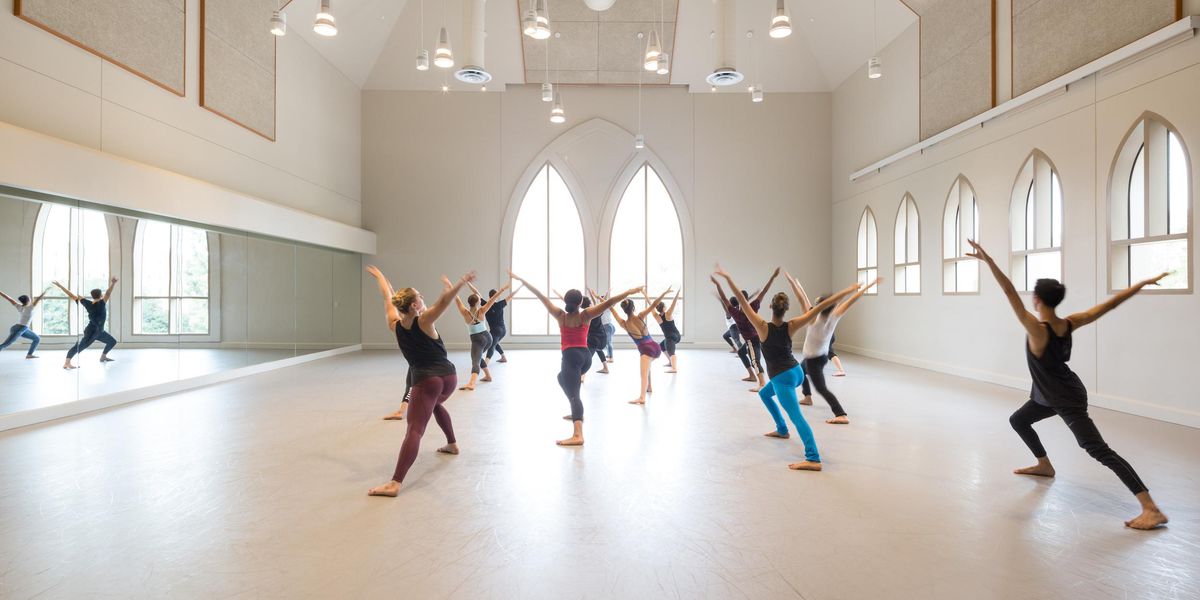Advice for Dancers: Rock Your Alter Ego
How to fake it till you’re confident, plus tips on bouncing back from a summer cold or allergies
My director tells me I need to dance with confidence and stop looking down when I’m being watched, but I don’t feel as pretty as the other girls in my company. Is this why I look down? How can I overcome this bad habit?
—Ugly Duckling, San Francisco, CA
In our culture, looking down often conveys a lack of confidence or uncertainty. The most charismatic performers know this, so they often adopt an alter ego with all the characteristics they should have to help them disregard their perceived flaws. Then, they give it a name! For example, Beyoncé channeled her inner diva onstage by calling herself “Sasha Fierce” to protect her more vulnerable self until she actually felt fierce. Though it might sound silly, there is a point: While you may feel insecure, your stage persona can be fearless. Although talent and artistry are key to your success, it would also help to be less critical of your appearance. You can improve your self-confidence (and perceived attractiveness) by using your own engaging personality, eye contact, smiling when appropriate and refusing to compare yourself to others. Do you think Odile would check out the competition during a performance?
How can I tell the difference between an allergy and a summer cold? I often get sick during gigs and have to dance with a stuffy nose and cough. Is it because I’m run down from performing a tough spring season or am I allergic to something from the warm weather? Either way, I’ve had enough!
—Vanessa, Queens, NY
It’s understandable that you’re confused and fed up by not knowing what’s happening or which treatments will bring relief. The fact is, being burned out from overwork and intense performance seasons can lower the body’s resistance to upper respiratory distress, which increases your vulnerability to both colds and allergies. Typically, it takes at least three weeks of rest for your immune system to fully recover from exhaustion. Having a cold can also worsen allergy symptoms and vice versa. The only differences are that colds may be accompanied by fevers and discolored mucus, whereas the major clue for seasonal allergies is that they occur at the same time each year. Summer colds also tend to go away within two weeks, aided by rest, fluids, a sinus rinse and honey for a sore throat. In contrast, allergies linger as long as the allergen is present. In summer, the major allergens include grasses and ragweed, along with indoor mold in damp areas. A skin or blood test by an allergist can diagnose triggers, with treatment ranging from over-the-counter medications to prescriptions or weekly shots.
If allergies are to blame, you can be proactive, even when taking medication. See pollen.com for information about the pollen count in your area, as well as useful tools like a two-day allergy alert e-mail and free apps about the amount of pollen in the air. The best results occur when you treat the first signs of an allergy rather than wait until it’s a full-blown attack.
My partner and I messed up a step when I picked her up, and I hurt my back so bad that I couldn’t get out of bed the next day. The doctor diagnosed the pain, numbness, weakness and tingling down my leg as a herniated disc at L5-S1 with sciatica. I’m stuck in physical therapy until it gets better. How long does this injury take to heal? I want to dance now!
—Ben, New York, NY
I know that it’s frustrating, but please don’t dance until you get the okay from your doctor. Back problems are quite common in dance due to the high-impact repetitive movements and extreme positions. In your case, partnering put you at an additional risk. Here’s what likely happened: A miscalculated lift placed a high degree of pressure on your spine. This caused the firm ring around the soft inner disc that lies between your vertebrae to rupture, allowing it to bulge and press against the nerve root. The nerve, which is sensitive to pressure, then became swollen and irritated. The pain spread down the length of your sciatic nerve, starting at the buttock, running down your leg and perhaps all the way to your foot. Thankfully, most herniated discs respond well to rest, physical therapy and pain and anti-inflammatory medications. A doctor may also suggest an epidural steroid injection to accelerate healing, which can take anywhere from weeks to months. Only severe cases, such as losing your foot’s reflexes and function, require surgery. As the swelling goes down, you can slowly increase your PT exercises and cross-training. The downtime also provides a rare opportunity for you to rethink your dance technique and address possible deficits, such as upper-body strength which can help with partnering.
Dr. Linda Hamilton
2000 Broadway, PH2C, New York, NY 10023
e-mail: [email protected]
Former New York City Ballet dancer Linda Hamilton, Ph.D., is a psychologist in private practice, the author of Advice for Dancers (Jossey-Bass) and co-author of The Dancer’s Way: The New York City Ballet Guide to Mind, Body, and Nutrition (St. Martin’s Griffin). Her website is drlindahamilton.com.




